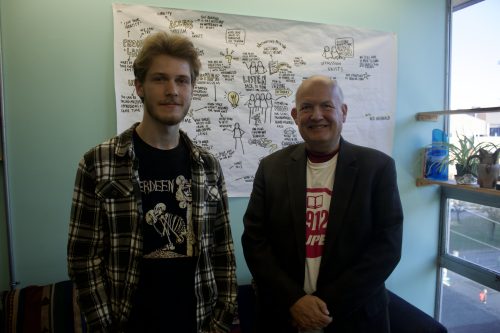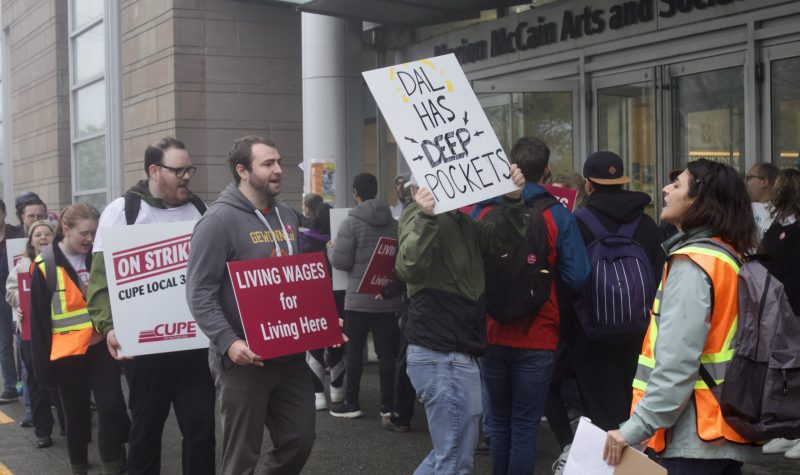Two weeks ago, Dalhousie University's including teachers' assistants (TAs), markers and demonstrators went on strike asking for wage parity for the first time in 20 years.
About 1,500 of CUPE 3912 union members have formed picketing lines around campus daily asking for a salary increase to keep up with inflation rates and have not been attending classes.
On Monday, Dalhousie University students walked out of classes around noon in support of the unionized school employees on strike. On Wednesday, CUPE 3912 members attended another round of bargaining with Dalhousie officials to continue negotiations, which resumed today.
Cameron Ells, CUPE 3912 president, and strike communications coordinator Mitch, who asked CKDU to withhold his last name for safety reasons, said their proposal includes putting demonstrators and markers in the same category alongside teaching assistants. Ells added that it was a productive meeting that will help "push things forward."
As per their last collective agreement, teaching assistants make $24.41 an hour and markers and demonstrators make $16.61 an hour.

CUPE 3912 President Cameron Ells and Strike Communications Coordinator Mitch share the latest updates regarding ongoing negotiations with Dalhousie with CKDU. Photo by Sara Gouda.
"Yesterday's negotiations involved a proposal from the employer. I provided some comments and the union provided a counter proposal back to the employer and the union representatives went in a different direction to review what had happened. The result was a desire on both sides to continue those conversations this afternoon, which were already scheduled," said Ells.
On their website, strike members said Dalhousie’s administration offered them raises that bring them closer to their U15 counterparts. However, they said the administration’s offer of $30.05 an hour for TAs by 2023 is still below their minimum acceptable TA wage.
The union's press release also said the administration refused to acknowledge the abuse of the markers and demonstrators' position, which has been used to give TAs 32 per cent pay cuts for doing the same work.
"The biggest deal for a lot of our members is the markers/demonstrators rule. Many of our members have worked a TA position teaching one course a year, and they come back the next year to teach the same exact course with the same job description, but the contract they're handed doesn't say TA, it says marker/ demonstrator. Then they just get a surprise 30 per cent pay cut," said Mitch.
He added that it is not acceptable to many CUPE members and that rule needs to be changed.
The last time the union saw a wage increase was in 2019.
"This is really a unique situation, because here at Dalhousie, we have one of the highest tuitions in the country. And yet, our teaching assistants and part-time instructors and other members of our union are paid comparatively very low wages to other universities across the country," said Mitch, adding that the union strike was a last resort, but a necessary one.
The ongoing strike is affecting Dalhousie University as some classes have since been canceled, some exams are not being marked and labs are not being run.
Ells and Mitch said they will continue negotiations today afternoon and that they appreciate the support the union has received so far, adding that paying union members better will provide a better quality of education for students.
Listen to the full interview below:


